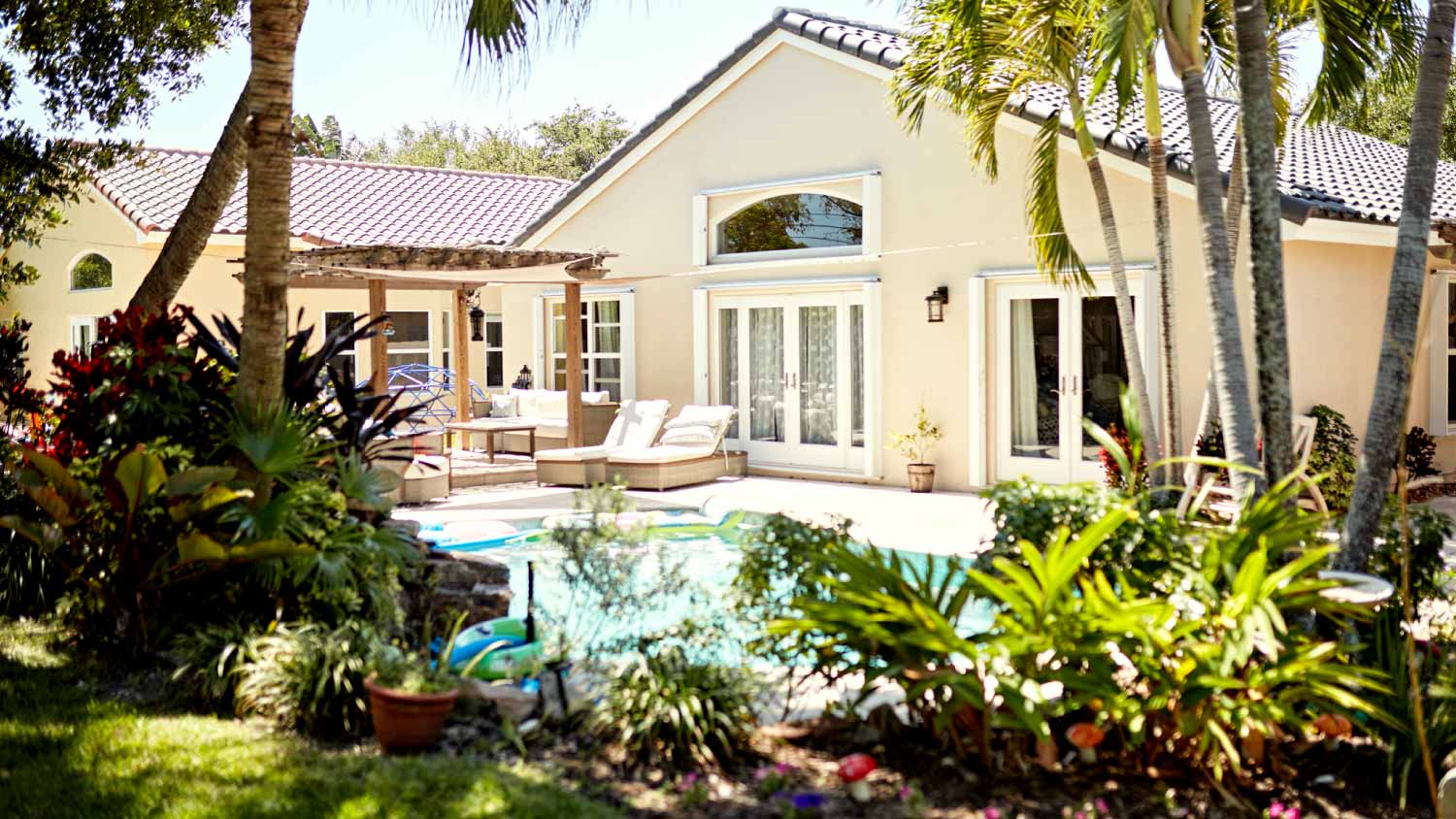
How much does it cost to rent a chainsaw? Whether it’s for cleaning up your yard or cutting firewood, learn what options are available and what you’ll pay.
These tranquil trees can last a lifetime


Palm trees can live 40 to 100 years or more.
The lifespan of a palm tree depends on the species, local climate, and level of maintenance.
There are over 2,600 species of palm trees in the world.
If you’re considering planting a few palm trees to add an island feel to your yard, you’re likely wondering how long palm trees live. Palm trees typically have a lifespan of 40 to 400 years, depending on factors like local climate and maintenance.
Let's examine the average lifespan of palm trees so you can decide whether you can grow these beauties or if it's time to call an arborist to help you figure out why your current palm is struggling.
The lifespan of a palm tree depends on the species, but it ranges between 40 and 100 years. However, some species have much longer lifespans. For example, date palm trees can live up to 150 years, and Mexican fan palms can live up to 500 years.
Other factors that determine how long palm trees live are climate, soil conditions, and level of maintenance. So, a palm tree's lifespan can vary significantly, but you can prolong its life by keeping it healthy, including performing maintenance tasks like pruning, watering, and fertilization.

If you are thinking of planting a palm tree or two, there are more than 2,600 species to choose from. Of course, most palm trees prefer warm climates, so you will need to choose a type that can survive colder conditions if you don't reside in an area with milder temperatures. Or you can choose smaller palms that can grow indoors.
Here are some of the most popular types of palm trees:
Coconut Palm: If you would love to grow your own coconuts, this type tops the pick of palm trees to plant. However, it can take up to seven years before it will produce coconuts. This tree can tower to a whopping 100 feet tall and thrives in tropical climates.
Date Palm: The delicious fruit known as dates comes from the date palm tree. These trees are native to the Middle East, so they flourish in hot, dry, sunny climates.
Foxtail Palm: These trees have fronds that look like a fox's tail and are resistant to pests. They also prefer warmer temperatures and lots of humidity.
Queen Palm: If you live in a colder climate, this is the tree for you. This palm can tolerate temperatures that drop to around 25 degrees Fahrenheit. It produces flowers and clusters of yellow and orange fruit, but the fruit isn't edible.
Mexican Fan Palm: Surprisingly, these palms can also survive cooler temperatures that get down to around 20 degrees Fahrenheit, but they prefer warm climates with moderate humidity. These are among the prettiest palms, and they produce creamy white flower clusters and berry-like fruit that attract wildlife.

To ensure your palm tree has the longest, healthiest life possible, consider following these maintenance tips. You can also hire a local palm tree professional to provide expert advice and care for your warm-weather trees.
Fertilize: It’s essential to use a slow-release and granular fertilizer on your palm tree to ensure it receives the appropriate amount of nutrients as it grows.
Watering: You should water new palm trees regularly but avoid standing water.
Pruning: Palm trees don’t require as much pruning as other types of trees, but you should remove dead leaves and branches as necessary.
Protect from the cold: Palm trees don’t fare well in cold weather, so consider wrapping their trunks and adding mulch to roots during a cold snap.
Palm trees can be worth the cost if you live in the right environment where they can thrive. Some species of palms are drought-tolerant, produce fruits and flowers, and can withstand strong winds. The price of a palm tree depends on several factors, such as type, size, and cost of labor, to have them planted by a professional.
The average cost of a palm tree is about $250 but can range from $100 to $2,000 or more. The size of the tree really affects the price. The taller the tree, the more it will cost. You can contact a palm tree specialist near you for an accurate quote and learn which type of palm trees will grow best in your lawn.
From average costs to expert advice, get all the answers you need to get your job done.

How much does it cost to rent a chainsaw? Whether it’s for cleaning up your yard or cutting firewood, learn what options are available and what you’ll pay.

Trimming your bushes is one of the less costly aspects of landscaping, and it’s helpful to bundle many trimming services together to save money.

Find out how much it costs to plant a tree based on the number of trees, their size, where you want to plant them, and DIY versus professional costs.

Learn the ways in which you can gently help your tree after its bark has been damaged, whether by woodpeckers or a lawnmower.

You don’t have to hire a professional to eliminate a tree stump. Save money and learn how to rot a tree stump quickly using these methods.

When trees suffer a lightning strike, what happens to it? Here’s what happens, the factors at play, and what you can do about lightning strikes.